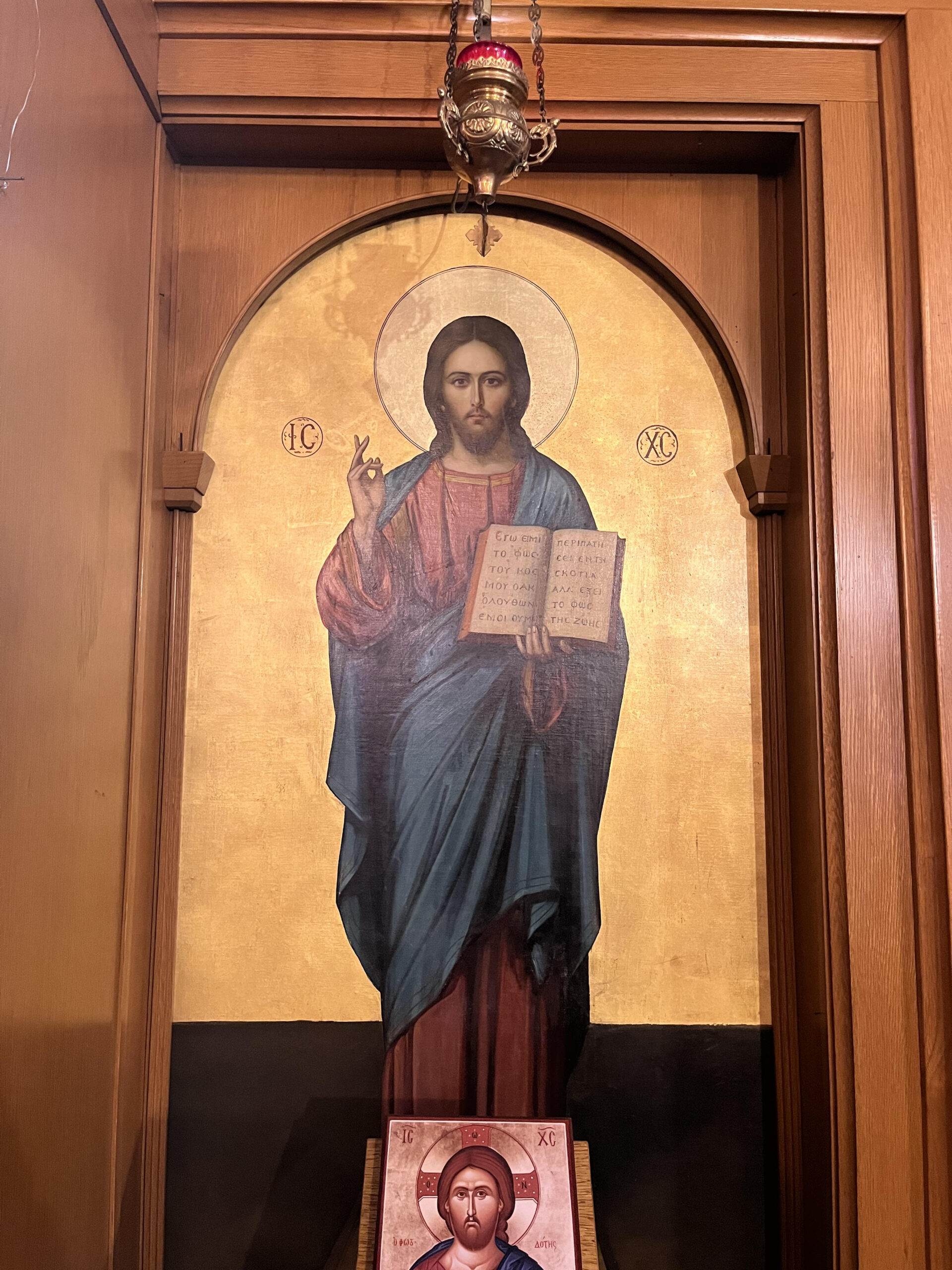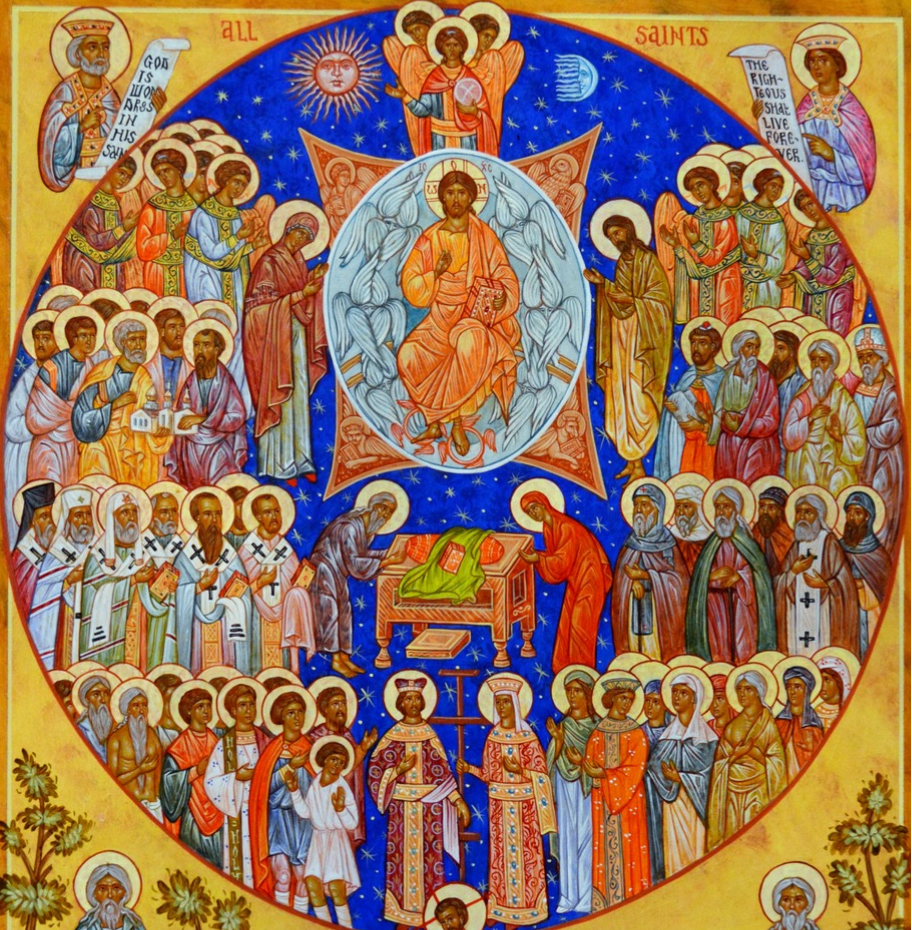Now you have observed my teaching, my conduct, my aim in life, my faith, my patience, my love, my steadfastness, my persecutions, my sufferings, what befell me at Antioch, at Iconium, and at Lystra, what persecutions I endured; yet from them all the Lord rescued me. Indeed all who desire to live a godly life in Christ Jesus will be persecuted, while evil men and impostors will go on from bad to worse, deceivers and deceived. But as for you, continue in what you have learned and have firmly believed, knowing from whom you learned it and how from childhood you have been acquainted with the sacred writings which are able to instruct you for salvation through faith in Christ Jesus.
II Timothy 3: 10-15 (Epistle for the Feast of St. Thekla)
We know that there is a lectionary of Epistle and Gospel Readings for each Sunday of the year. When a feast of Christ or the Virgin Mary or a major saint (Evangelist, as an example) falls on Sunday, both the Epistle and the Gospel for that Sunday give way to the feast of the day. On other saint’s days, it may be that just the Epistle is for the saint, while the Gospel is the one from the lectionary. Such is the case this weekend, as the Epistle is for St. Thekla, while the Gospel is the first Sunday the first Sunday of Luke. From the Sunday after Pentecost until the Sunday preceding the Sunday Before the Holy Cross, we read from the Gospel of Matthew. The Sundays before and after the Holy Cross have their own unique readings. On the Sunday following the Sunday after the Holy Cross, up until two Sundays before the Nativity, we read from the Gospel of Luke.
St. Thekla is one of the earliest saints of the church. According to many historians, she is the first female martyr. A daughter of wealthy parents, she eschewed an arranged marriage to live a life of virginity, devoted fully to the Lord. She traveled at time with St. Paul. She was imprisoned and tortured on multiple occasions and her witness for the Lord was well known and very public. Delivered from all of them, she lived to be 90. Pagan sorcerers came to defile her virginity. She prayed to the Lord and a large rock split open and covered her, and as it did, she offered her soul to the Lord. She has the title “proto-martyr” and also “Equal-to-the-apostles” because of her close association and with St. Paul and St. Barnabas.
The Epistle from II Timothy 3: 10-15 is read on the feast of St. Thekla. This is in part, most likely, because it mentioned the cities of Antioch and Iconium, places where St. Thekla preached the Gospel. It mentions persecutions, and even though in this particular example, they were persecutions inflicted on St. Paul, they also apply to St. Thekla. Most important, the passage begins with comments on the teaching, conduct, aim in life, faith, patience, love, steadfastness, persecutions, and sufferings, things which befell St. Paul and also St. Thekla. We don’t know necessarily the mind of the church leaders who matched this Epistle to the feast of St. Thekla, but for those who know her story, what Epistle could be more appropriate.
The passage begins with a checklist of what comprises a good Christian life—conduct, aim in life, faith, patience, love and steadfastness. If you took these six traits and rated yourself on a scale of 1 (don’t exhibit them at all) to 10 (strongly exhibit them) how would you rate yourself? And, perhaps more poignantly, how would others rate these traits in you. Because as St. Timothy proclaims (and I don’t think it comes off as boasting), he remarks that people observed these things in him.
There are three other traits in Paul’s list of nine traits in II Timothy 3: 10-11—teaching, persecutions and sufferings. If one was to list the traits of a good Christian, many, and hopefully all, of the above six would make the list in every Christian. These last three are important and oftentimes overlooked or not thought of by us. We are supposed to have good conduct, aim in life, faith, patience, love and steadfastness. Those are hard enough. Additionally, we are supposed to be teachers of the faith. No, that doesn’t mean we all have to be Sunday school teachers. However, we are supposed to teach by example, and are supposed to give some instruction and encouragement to our children and those in our care. We should know enough about our Christian faith in order to teach something of it to someone else. Can you do that? Do you know enough about Jesus that you could teach others something about Him? The Great Commission in Matthew 28: 18-19, is a command of the Lord to each “disciple,” including us, to “go, make disciples of all nations, baptizing them in the name of the Father and of the Son and of the Holy Spirit, teaching them all that I have commanded you.” Part of the Great Commission (which is a commandment, not a suggestion) is that we are each called to be “teachers” of the faith.
St. Paul lists two other traits, both of which evoke fear, uncertainty and unpleasantness in us—persecutions and sufferings. Must one endure persecutions and sufferings in order to be a Christian? Should one expect to suffer? Have you ever suffered or been persecuted because of your Christian faith? I remember being docked a grade in a class in college because I didn’t go to class on Good Friday. Of course, almost 30 years later that didn’t really matter in my life overall. I would say I have “suffered” at times as a priest, but I don’t know if that is because no “executive” can please everyone or if that’s because I’m a committed Christian. As I pose this question about suffering and persecution, I pose it to myself while posing it to you. The answer is “I’m not sure.” To which someone might justifiably say “if you haven’t suffered or been persecuted for Christ, then how deep is your faith really?” And that is a fair question. Am I ready to suffer and be persecuted? I think so. But if the moment comes, will I or not? And this is why it is so important that we read Scripture and why the words of St. Paul to Timothy as so important today. They not only provide an opportunity to check in with six traits we should all be well on our way to having and demonstrating. They provide us an opportunity to examine three traits that perhaps we don’t consider when it comes to our Christian life.
Today’s point to ponder is, as regards teaching, conduct, aim in life, faith, patience, love, steadfastness, persecutions and sufferings, do people see these things in you?
All aflame with love for your Creator, from the teachings of the sacred preacher, you disregarded as fleeting all things mundane. And being bold in the face of the panlties, you gave yourself as a beautiful gift to God. Thekla, glorious companion of the Apostle Paul, we pray you entreat your Bridegroom, Christ, and ask Him to grand us His great mercy. (Apolytikion, Feast of St. Thekla, Trans. By Fr. Seraphim Dedes)

